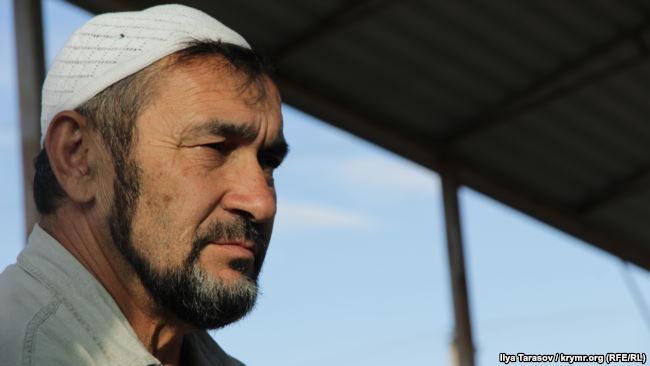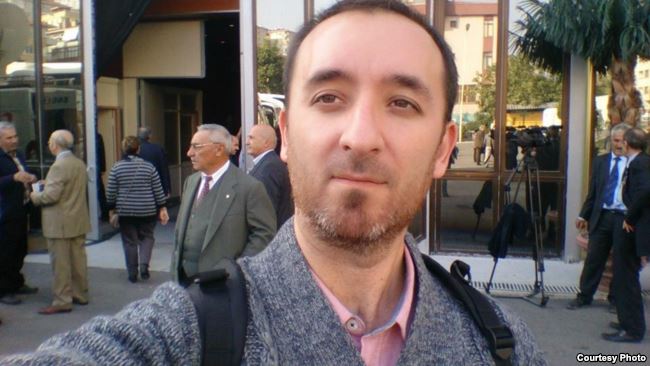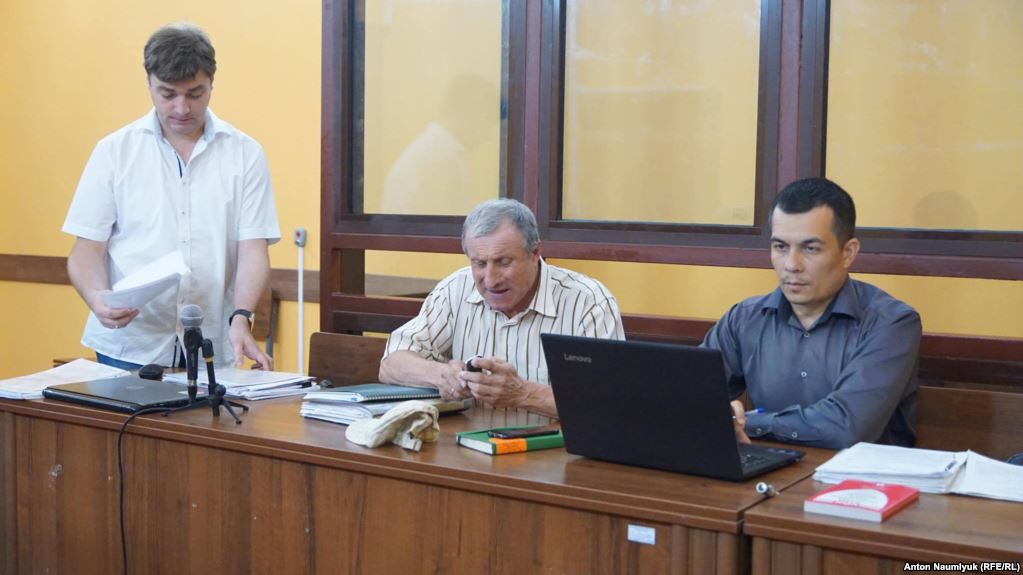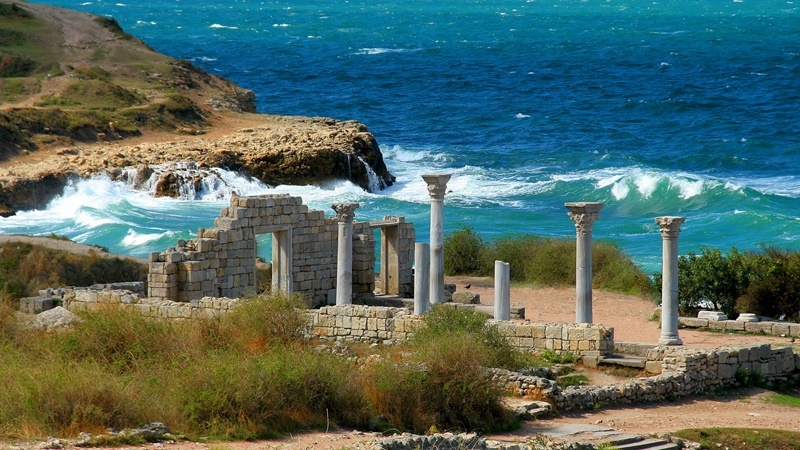Mykola Semena was accused by the Russian authorities of issuing public calls to violate Russia’s territorial integrity. In April 2016, the Russian FSB searched his house, and in May of this year, he was formally charged with publishing an article at the Krim.Realii website. The journalist is currently under a court order not to leave his home.
At the same time, Ukraine’s Ministry of Foreign Affairs has issued a strong protest in connection with the Crimean journalist’s sentencing, calling it “a shameful attack by the occupying regime on the rights of a Ukrainian citizen.” Human rights activists and journalist organizations also regard Semena’s persecution as politically motivated. Tom Kent, the president of Radio Free Europe / Radio Svoboda, as well as the US embassy in Kyiv, have called for the verdict to be repealed, while Serhiy Tamilenko, chairman of the Ukrainian National Union of Journalists, called the court’s decision “a prosecution against freedom of speech.”
At the same time, Zair Smedlyaev, an activist at the Crimean Tatar National Movement, emphasizes that Semena’s prosecution is “just one example of the systematic destruction of independent journalism in Crimea, which has been carried out since the first days of the peninsula’s annexation.”
“From the very start of the occupation, there has been a contact with journalists. They have been summoned for interrogation, intimidated and threatened. For example, in the summer of 2014, the federal service for supervision in the telecom sector filed a complaint against the Crimean Tatar newspaper Avdet and its editor, Shevket Kaybullayev, after which he was summoned to the FSB. A similar fate befell the editor of the newspaper Kirim, Bekir Mamutov. In November 2015, a search was carried out at the home of the former editor of the ATR television channel, Lila Budzhurova. Searches were carried out on several occasions at her place of work. In parallel with Nikolai Serena case, on the very same day, two more Crimean journalists were searched (in April 2016 searches were carried out at the same time against seven journalists in Simferopol, Yalta, and Sevastopol). On 19 April 2016, officials searched the home of Crimean blogger Zair Akadyrov. An attempt was even made to kidnap him near the supreme court building, but fortunately, passers-by prevented it,” Smedlyaev recounted in an interview with Krim.Realii.

According to the Crimean Tatar activist, during the interrogation, the forces threatened journalists, intimidated them and also applied administrative pressure to the unfavorable media.
“As a result, two newspapers, Avdet and Krimska Svetlitsa (the only Ukrainian language newspaper in Crimea) had their licenses withdrawn. Similarly, broadcasting licenses were withdrawn from ATR television channel and Lyala children’s channel. As a result, Lyala, ATR and Krimska Svetlitsa were forced to move to mainland Ukraine. Very many journalists have simply been left with no choice but to leave Crimea,” Smedlyaev added.
A year ago, the Ukrainian Ministry of Information noted that there was no freedom of speech in Crimea, and the peninsula’s current authorities were putting pressure on the journalists remaining true to their profession. This was stated by Emine Dzeppar, first deputy minister of information policy in connection with the search performed at the house of the Crimean journalist, Elmaz Abduveliyeva on 2 September 2016.
“Having replaced a number of Crimean media organs along with dozens of journalists not ready to serve an invader, the authorities resorted to repression against those Crimean journalists who remained loyal to their profession. Amongst these are Zair Akadyrov, Mykola Semena, and others. The search carried out at the home of Elmaz Abduveliyeva is proof that being a journalist in Crimea is a risk”, she noted.

Searches and threats were not the only methods used by the Russian security services. For example, in March 2014 the editor of Krimska Svetlitsa, Andrei Shekun, along with the activist Anatoly Kowalski, were kidnapped by the so-called Crimean “Self Defence”. For 11 days, the activists were interrogated, beaten and tortured. Andrei Shekun now heads the State Newspaper and Publishing House, and recently published a book in Kyiv by Mykola Semena, titled “Crimean report – chronicle of the occupation of Crimea 2014-2016.”

“Shekun’s kidnapping and torture were aimed at intimidating other journalists. And it really worked: many left the peninsula right then. At the same time, the “Self Defence” attacked journalist Osman Pashayev. He was beaten and then summoned for interrogation. Subsequently, he too left the peninsula. The arrested journalists were threatened with murder and rape. When on 18 May 2014 Ukrainian journalists tried to interview me at a demonstrating marking the 70th anniversary of the deportation of Crimean Tatars, they were also detained. They never managed to interview me,” Zair Smedlyaev recalls.

At the same time, it is not only professional journalists that the Russian authorities have gone after. Even bloggers and users of social media platforms have recently been fined 300,000 roubles under article 282 of the Russian criminal code for posting pro-Ukrainian material on Facebook.
Zair Smedlyaev notes that some of the Crimean media has succumbed to the pressure, and sided with the occupational authorities.
The activist cites the example of the Crimean Tatar newspaper Yangi Dyunya (New World), which “serves the interests of the new government. At the same time, it comes out in the Crimean Tatar language, trying to win over our audience.”
Now, a new pro-government Crimean Tatar television channel, as well as radio and newspapers, have been set up. At the same time, the heads of some of these media organs were accused of embezzling budgetary funds. However, this only ended with their dismissal – no criminal prosecution. In fact, the case was simply hushed up. Obviously, this was the price of their loyalty. Now, after their dismissal, they glorify the new government for free – apparently out of gratitude for that leniency. But these journalists are relatively few in number,” Smedlyaev concedes.
Read more:
- Meet Mykola Semena, the Crimean journalist prosecuted for disagreeing with Putin’s landgrab
- Four Crimean Tatars detained in new wave of religious persecution
- EU Parliament demands Russia release 47 Ukrainian de facto political prisoners
- World writers community urges Moscow to free Ukrainian and other prisoners of conscience
- “It’s Russia which broke the law” – last word of Crimean journalist
- World powers, human rights organizations indignant about Russia’s conviction of Crimean Tatar leader
- Russia’s show trial and sentence against Crimean Tatar leader Chiygoz
- Russians persecuting ethnic Ukrainians and other ethnic groups, leading rights groups say
- Academia again serves state ideology as Russia convicts Ukrainian library head
- FSB detains journalists in Crimea and harasses their families
- Journalist Ayder Muzhdabayev: Persecution of Crimean Tatars is a disgrace to Russia






